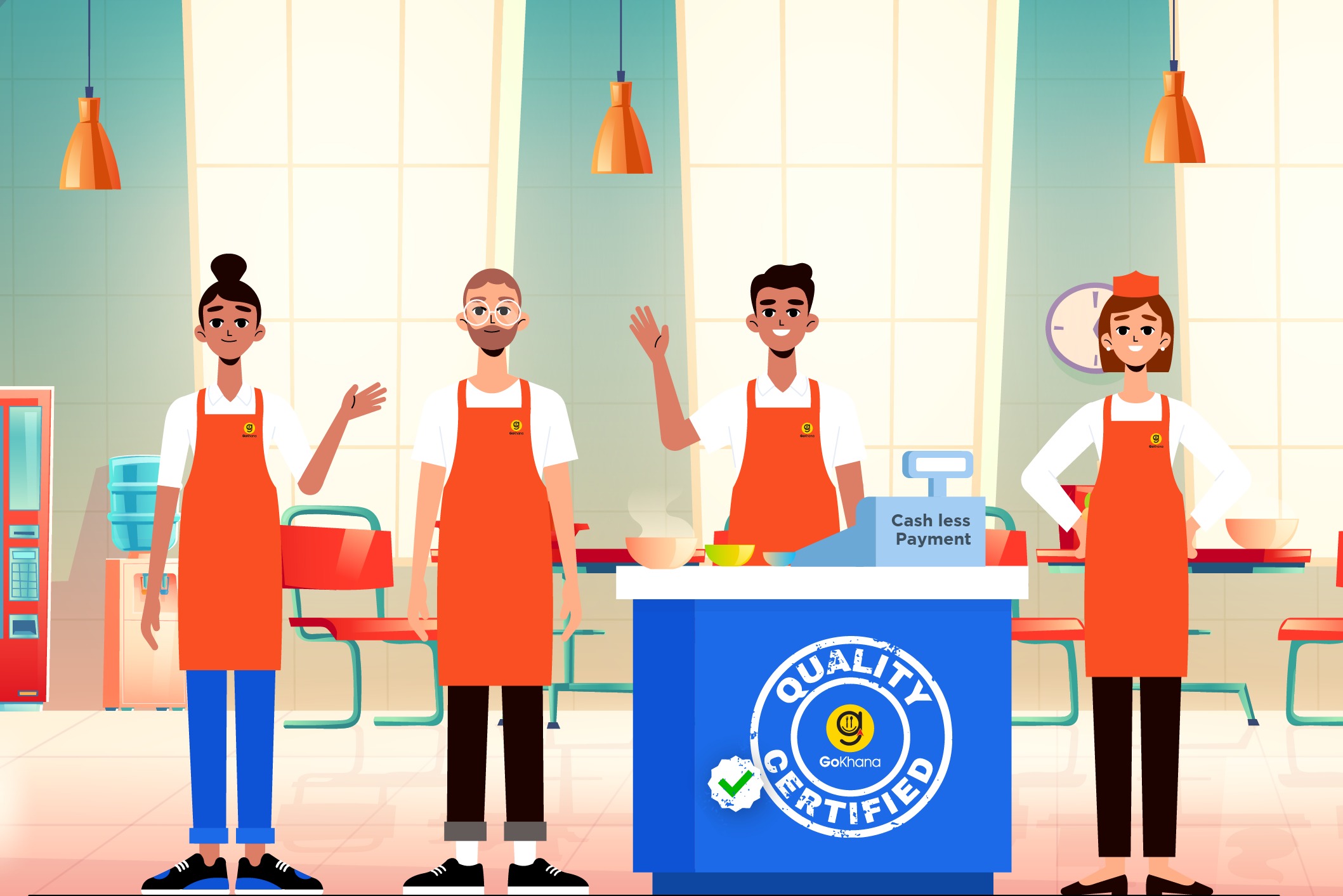The role of food tech aggregators in ensuring High-Quality Food from Vendors
Food tech aggregator companies play a crucial role in connecting consumers with their favourite restaurants and food vendors, even in corporate dining situations. However, ensuring that the food provided by these vendors is of high quality can be a challenging task. It is up to the food tech companies to ensure that they have systems and methods in place to maintain hygiene, transparency, and compliance with local health regulations, apart from a great consumer experience.
Hygiene
Hygiene and cleanliness are critical factors that can make or break a food tech aggregator company’s reputation. Consumers expect the food tech aggregator to set the benchmarks and maintain high levels of hygiene by the food vendors, as failure to do so can lead to serious health related consequences, leading to loss of trust from customers. Ensuring that vendors maintain high levels of hygiene can help reduce the risk of foodborne illnesses and improve customer satisfaction, while also safeguarding the reputation of the aggregator.
Transparency
Transparency is another crucial factor that food tech aggregator companies must consider. Consumers today are more conscious about the food they eat and want to know a lot more in terms of calorie count, etc. By providing transparency about the offerings, food tech aggregator companies can build trust and credibility with their customers. A food tech platform makes information available to the end customer directly on the app so that a customer can make a very informed decision before placing an order.
Compliance with Local Health Regulations
Compliance with local health regulations is also important for food tech aggregator companies. Local health authorities have established regulations to ensure that food is safe for consumption. The food aggregator ensures that only 100% compliant vendors who comply with these regulations operate in any cafeteria, thereby reducing risks of non-compliance as well as ensuring customers are protected from unethical or below-standard vendors.
Inspections and audits
To ensure that the vendors are meeting the hygiene and compliance standards, food tech companies can adopt a methodology that involves inspections and audits. Inspections can be carried out regularly to check the cleanliness of the workspace, the freshness of the ingredients, and the quality of the food being prepared, adherence to safety standards, and so on. With the help of digital checklists, an aggregator ensures that all parameters of health & hygiene are thoroughly checked on a daily basis and this information is available on a real-time basis to all stake holders.
Food tech companies use HSEQ (Health, Safety, Environment, Quality) parameters to audit a vendor on a very frequent basis. These audits evaluate the vendor across various heads with granular details to ensure that every aspect of the outlet and kitchen meets the regulatory requirements. Every line item is scored, and a minimum total score has to be achieved for a vendor to be considered compliant. The HSEQ teams of a food tech aggregator also helps the vendor by giving them relevant feedback and action points which help the vendor improve their audit score.
Some of the heads that the company audits include
- Design and facilities: This ensures that the design of the food premises provides adequate working space; permits maintenance & cleaning to prevent the entry of dirt, dust & pests. The audits also includes inspection of safe building materials and structures, safe electricals, cooking fuel safety (LPG bank, etc.), non-toxic and hygienic equipment and storage, adequate lighting and ventilation, among others.
- Personal hygiene: This includes staff grooming, appropriate clothing/accessories, staff health including diseases or cuts/wounds, and habits like smoking, or chewing tobacco.
- Control of operation: This covers processes and systems in place for incoming material, segregation of food by type veg/meat/frozen/fresh, etc.), storage (including temperature control), as well as sorting/sieving/washing of supplies according to the nature of material and transfer to clean crates/containers. It also covers the inspection and verification of cooking oil and packaging and wrapping material coming in contact with food. The operations audit includes sanitisation of equipment and work areas, cleanliness of vehicles used for conveyance and delivery, and so on.
- Maintenance and sanitation: This section covers the cleaning of equipment and food premises as per cleaning schedule & cleaning programme, preventive maintenance of equipment and machinery, pest control programs by trained and experienced personnel, inspections for signs of pest activity or infestation in premises, etc. Food waste handling, scientifically designed drains, availability of hot water, etc. are checked to ensure safety and hygiene.
- Training and records keeping: This section includes records of periodic internal and external audits of the system, customer complaints records including corrective action taken, food safety training for food handlers and other training records.
The results of inspections and audits can be used to provide feedback to the vendors on areas that need improvement. The food tech aggregator company can also provide training and resources to help the vendors meet the standards consistently. This will not only improve the quality and safety of the food but also help to build a positive reputation.

